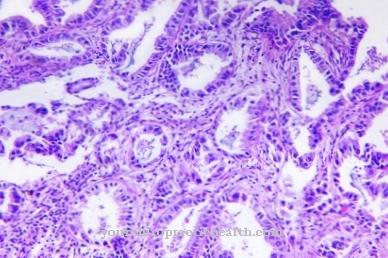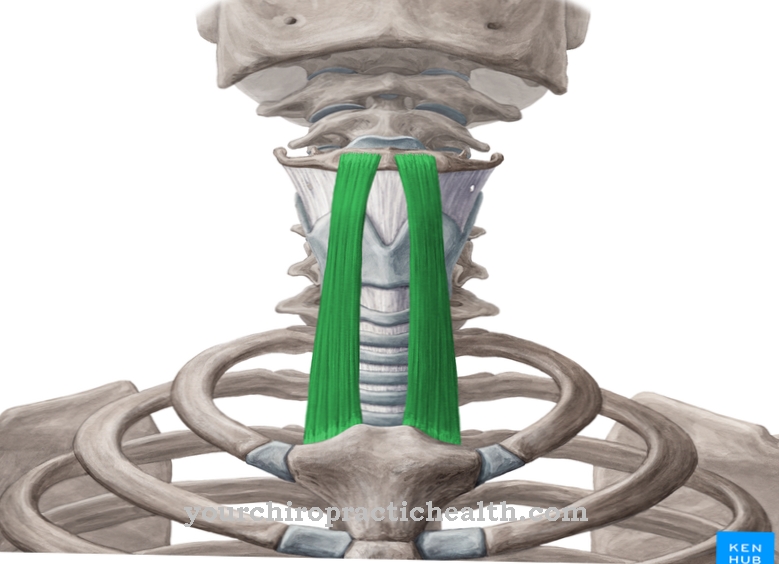When women are pregnant, watch out for any changes in their bodies. Then even more discharge is enough to unsettle the women. Fears of complications also worry the pregnant woman. Even a strong one Discharge is in pregnancy but mostly completely normal and harmless to mother and child. However, if additional symptoms occur or if the discharge changes noticeably, caution is advised.
Pregnant? Discharge is often seen as the first sign
Nausea, tiredness and a feeling of tightness in the breasts are the first signs of pregnancy. Many women notice these symptoms long before the period does not stop. Sometimes the Discharge during pregnancy change and thus be a sign that offspring are coming up.
Why does discharge change during pregnancy?
Every woman knows vaginal discharge. In the course of the normal monthly cycle, the consistency changes. Hormonal changes affect both the strength and the consistency of the vaginal discharge. The vaginal secretion serves to acidify the vaginal environment. The lactic acid bacteria found in the vagina break down a storage form of sugar (glycogen) into lactic acid.
This lactic acid serves to stabilize the vaginal flora and also acts as a protective barrier against bacteria.Increased blood flow to the vaginal region and an increase in the female sex hormones estrogen and progesterone lead to increased discharge. The discharge will keep its normal consistency and color. The smell should also not change noticeably. Normal discharge is an expression of healthy vaginal flora.
If the discharge is due to illness
Changes in color, consistency or smell should always be interpreted as a warning. Pain or itching also indicate an infection, which should be clarified by a doctor. A crumbly, white discharge can indicate a fungal infection.
Discharge caused by a fungal infection usually doesn't smell. However, it is accompanied by severe itching and redness in the genital area. Redness also occurs with a bacterial infection. Here, however, the discharge smells very unpleasant. Affected people describe the smell as fishy.
A watery discharge should also make the affected women prick up their ears. A neutral-smelling, watery discharge can indicate a tear in the amniotic sac. Since this is a serious pregnancy complication, a gynecologist should be consulted as soon as possible for further clarification.
Vaginal infections can be dangerous for the child during pregnancy. Therefore, if the discharge suddenly becomes clear, bloody, or very severe, see a doctor at all times. A doctor's appointment should also be made in the event of changes in color and texture. There are infections with discharge that must be treated with vaginal suppositories containing antibiotics to protect the child and mother.
Tips for adequate hygiene during pregnancy
Incorrect and / or excessive intimate hygiene can damage the vaginal environment and promote infections. Intensive washing with soap, intimate deodorants and vaginal douches should not only be taboo during pregnancy.
The funds damage the self-cleaning mechanisms of the vagina and disrupt the balance in the flora. Bacteria and fungi can easily multiply in a disturbed environment. Inflammation with increased discharge is the annoying and dangerous consequence. Even tight-fitting clothes made of synthetic materials disturb the breathing of the vagina and the composition of the vaginal fluid. Basically, simple hygiene rules are sufficient to maintain the environment in the vagina and to prevent infections. Clear water is sufficient to clean the vagina. Alternatively, special washing lotions with a low pH value can be used. PH-neutral washing lotions are not suitable for the intimate area. In addition, women should make sure that they always wipe from front to back after a bowel movement.
When wiping from the back to the front, bacteria from the stool can get into the genital area and cause infections there. But not only the pregnant women, but also their partners should adhere to certain hygiene rules. If there is insufficient hygiene, the so-called smegma can accumulate under the foreskin of the penis. This contains bacteria. During sexual intercourse, the bacteria can get from the man's penis into the vagina and cause infections there.
Important protection for the child
An increased discharge during pregnancy is usually not a cause for concern. Rather, the discharge actually serves to protect the unborn child. It is an expression of a healthy vaginal flora. This protects the unborn child from ascending infections. Bacterial vaginosis can pose a great risk to the child. Vaginal candidiasis can also harm the child.
With a healthy vaginal flora, however, neither fungi nor bacteria can settle in the vagina. In this way, the healthy flora prevents infections and the child is protected. If you are troubled by the heavy discharge, you should remember that this symptom is only temporary. In some women, the discharge decreases during pregnancy; in other women, it increases just before labor.
A stronger discharge at the end of the pregnancy can also be interpreted as an indication of the impending birth. The only cause for concern is if the discharge is smelly, yellow, green, thick, crumbly, or if the discharge is combined with burning or itching. Nevertheless, the following applies: Concerned mothers should rather visit their gynecologist too much rather than too little.








.jpg)





.jpg)






.jpg)






